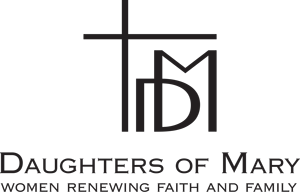Vol.5 No.5 DoM Gospel Reflection
Mark: 10:17-27
Twenty-eighth Sunday In Ordinary Time
By Shirley Moody
This story appears in each of the three Synoptic Gospels. As we learned some weeks
back, Mk’s Gospel is the earliest of all the Gospels. It is believed to be the guide
for Matthew and Luke’s Gospels. That is why they are so similar….
thus the term Synoptic.
MK states: “As Jesus was setting out on a journey, a man ran up, knelt before him and asked, “Good Teacher, what must I do to inherit eternal life?” There is much food for
thought in this statement.
1) What journey is Jesus setting out on? None other than the road to Jerusalem
and to the Cross.
2) Then it states the young man, ran and knelt before Jesus. Apparently, Jesus’
reputation had preceded Him and he ran in haste as he knew Jesus was
passing through town. By kneeling, he was showing great respect.
He had to believe that Jesus could answer his question and clear up his confusion.
To ask about eternal life, shows he was a Pharisee.
The Pharisees were a lay group in opposition to the Saducees. They were, however,
in close alliance with the Scribes who were the teachers and interpreters of the law.
They believed in the strict adherence to the law and believed observance to the law
was the way to attain eternal life. That is why he asked Jesus what he could “do”
to attain this eternal life.
The Gospels allude several times to the proud exclusiveness of the Pharisees.
They believed in angels, the resurrection of the dead and the judgment.
The Saducees believed in none of these things.
He called Jesus “Good Teacher” and Jesus immediately directs him to God…
the source of all goodness. “You know the commandments and names them.
The man then simply refers to Jesus as Teacher and replies “I have observed these from my youth”. Jesus looks at him with love. This is the first time in the Gospel when Jesus looks at an individual with love. Can you just imagine that look?
Jesus then pinpoints the source of this man’s dissatisfaction. “You are lacking in one thing……go sell what you have and give to the poor.”
Jesus invited him to “follow me and you will have treasures in heaven.” He refused.
He then walked away……sad, for he had many possessions.
What was it about this man that this was required of him. It had not been required of
all who did follow Jesus. Was he too attached to his wealth? He had to be part of the upper class. Did he enjoy the social standing that came with that. Evidently, this man found security and comfort in his wealth and was not ready to give it up.
This is a sobering conclusion to the story. It is the first time Jesus’ invitation to
discipleship had been directly refused. I am sure that Jesus watched in sadness as
this man walked away.
Jesus takes the occasion of the rich man’s departure to instruct his disciples about
the dangerous snare earthly riches can be. In this teaching on the dangers of
riches, Jesus does not denounce wealth as evil itself. Rather it is the attachment to wealth that is perilous.
I know when I was young, I did not have the relationship with God that I do
now. It took maturity and life experience and searching just as this man searched.
I cannot help but hope that he too came into a wonderful experience of God’s
presence and love. That he too learned as I did, as the song Fran played said:
“The highest place on earth, is still at your feet,
I surrender, I surrender, all that I am to you My Lord.”
LK 12:48 tells us: “To whom much is given, much is expected.”
In “The Word Among us” for October, the commentary for this Gospel tells a
story about John Wesley who was the founder of the Methodist faith. Wesley
wrote three things that I now quote: “Make all you can. Save all you can.
Give all you can”. The commentary goes on to say that Wesley earned the
equivalent of $1.4 million a year in today’s money. Over his entire lifetime,
he earned the equivalent of $30 million. However, when he died, there was
no money left. He always lived on 2% of his income and gave the rest away.
The commentary ends with…..”May we all try to live simply so that we can live
generously.”
References:
Dictionary of the Bible, McKenzie, S.J., John Workbook for Lectors, LTP
The Gospel of Mark, Healy, Mary The Word Among Us
New American Bible
